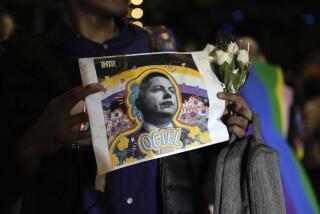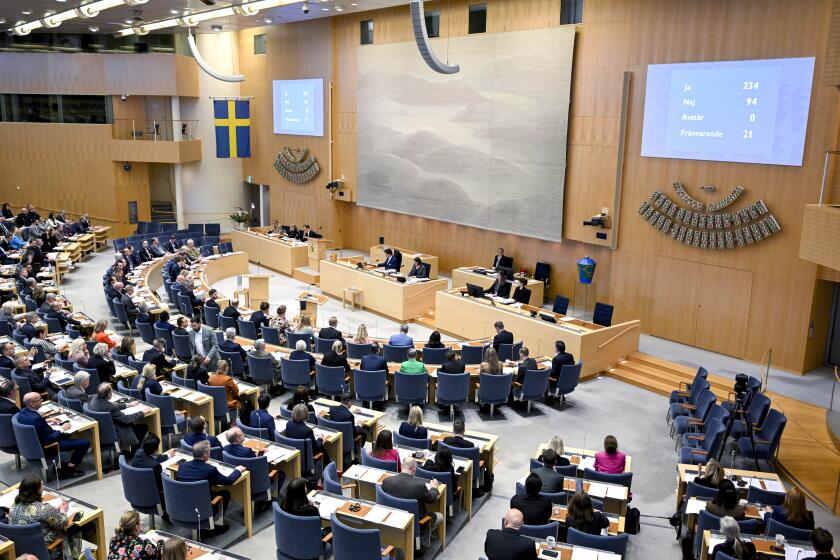Rehearsal for Democracy
American officials have set the bar about as low as it can go for expectations about Sunday’s election in Iraq. Is it a success if only 20% of the voters turn out? If the outcome is decided more by voters outside the country than in it? Nobody wants to say, and for good reason. As low as the bar is, the election could still prove to be a disappointing farce.
Days before the balloting, most Iraqis have no idea where their polling places will be -- unless they are voting outside the country. In Baghdad, Mosul, Ramadi and other cities, officials have kept the location of polls secret as long as possible for fear that insurgents will destroy the sites.
Many Iraqis have refused to announce their candidacies for one of the 275 seats in the interim national assembly or for offices in the provinces. Suicide car bombers and terrorist executioners have tried to scare voters away from the polls, especially in cities with a majority of Sunni Arabs.
Yet with sufficient luck, the balloting could mark the start of independent rule for the country and an eventual withdrawal of U.S. troops. Without luck or good follow-up, the election could fuel a civil war.
The expectation is for parties led by Shiites, who account for about 60% of the population, to win most of the seats in the assembly. Kurds, who are Sunni but not Arab, make up about 20% of the population and may take about that percentage of the seats. Arab Sunnis, who account for about 20% of the population but were favored by fellow Sunni Saddam Hussein, are boycotting. That will increase the pressure on the winners to determine how to bring the Sunnis into the political process after the election.
One possibility would be increasing the number of assembly seats and earmarking some of them for Sunnis. Whatever happens, Sunni involvement in the assembly’s drafting of a new constitution is to be encouraged. Voters will get the chance to pick a full-term assembly later this year, and also will decide whether to approve the constitution. Sunnis have majorities in three provinces, and the transitional law passed last spring allows rejection of the constitution if two-thirds majorities in three of the country’s 18 provinces turn thumbs down. That gives Sunnis leverage, which they should use to push for a constitution that provides for protection of minority communities.
There’s no reason to expect a quick end to violence after Sunday’s election. But the start of returning the country to Iraqi rule could diminish support for assailants who prevent reconstruction. A decent turnout also could encourage Iraqis to join security forces needed to protect their country and let U.S. troops come home. Delaying the balloting would not have guaranteed Sunni participation or a reduction in killings -- but it would have betrayed the Shiites. Violence and boycott will cast shadows over Sunday’s election, but Iraqis should use it as a rehearsal for the balloting later this year.
More to Read
Start your day right
Sign up for Essential California for news, features and recommendations from the L.A. Times and beyond in your inbox six days a week.
You may occasionally receive promotional content from the Los Angeles Times.






